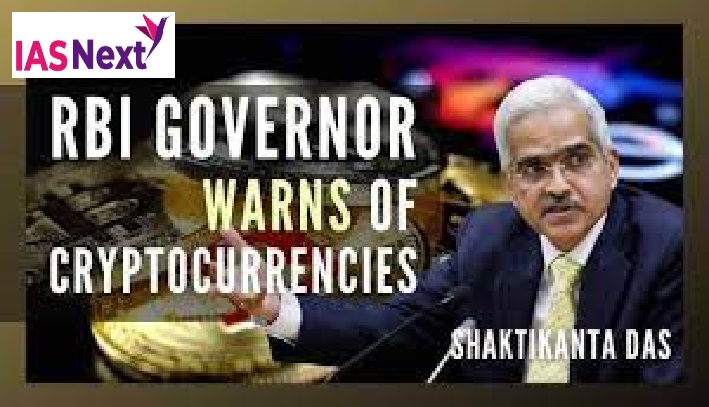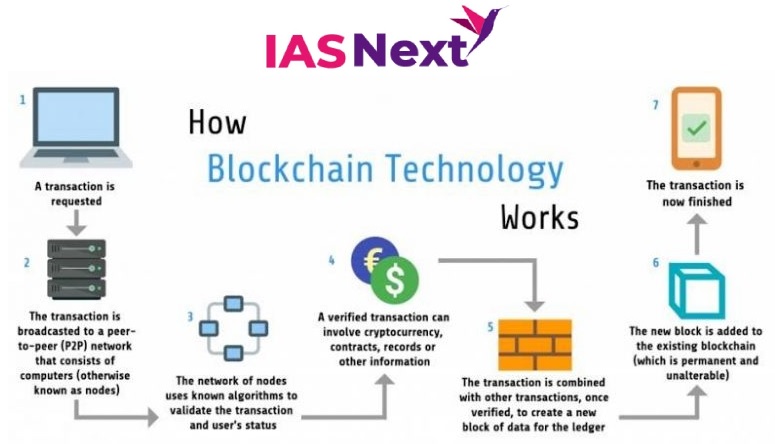CURRENT AFFAIRS
Get the most updated and recent current affair content on Padhaikaro.com
RBI governor Shaktikanta Das sounds alarm on cryptocurrencies
- IAS NEXT, Lucknow
- 13, Nov 2021

Reserve Bank of India (RBI) Shaktikanta Das has sounded alarm on cryptocurrencies, cautioning investors on the potential pitfalls of the digital currency.
Concerns raised: Cryptocurrencies are a very serious concern from a macro economic and financial stability point of view.
Background:
After the Supreme Court overturned the RBI’s order, which effectively lifted the ban on cryptocurrency trading in India, the craze in India has grown at a furious rate. Crypto craze remains elevated among Indian investors, especially the retail ones.
How has the government responded so far?
- The union government has not yet enacted a law on cryptocurrencies is in consultation with industry experts, comments from various officials and ministers.
- After several rounds of caution, the government might largely want to set severe limits on the trading of cryptocurrencies in India in the larger public interest.
Present status of Cryptocurrencies in India:
- An inter-ministerial panel on cryptocurrency has recommended that all private cryptocurrencies, except any virtual currencies issued by state, will be prohibited in India.
- The Reserve Bank of India (RBI) has also raised concerns on the cryptocurrencies traded in the market and conveyed them to the Centre.
- Back in March 2020, the Supreme Court had allowed banks and financial institutions to reinstate services related to cryptocurrencies by setting aside the RBI’s 2018 circular that had prohibited them (Based on the ground of “proportionality”).
What are Cryptocurrencies?
Cryptocurrencies are digital currencies in which encryption techniques are used to regulate the generation of units of currency and verify the transfer of funds, operating independently of a central bank.
Examples: Bitcoin, Ethereum etc.

Why is the RBI against the use of cryptocurrencies?
- Sovereign guarantee: Cryptocurrencies pose risks to consumers. They do not have any sovereign guarantee and hence are not legal tender.
- Market volatility: Their speculative nature also makes them highly volatile. For instance, the value of Bitcoin fell from USD 20,000 in December 2017 to USD 3,800 in November 2018.
- Risk in security: A user loses access to their cryptocurrency if they lose their private key (unlike traditional digital banking accounts, this password cannot be reset).
- Malware threats: In some cases, these private keys are stored by technical service providers (cryptocurrency exchanges or wallets), which are prone to malware or hacking.
- Money laundering.
SC Garg Committee recommendations (2019):
- Ban anybody who mines, hold, transact or deal with cryptocurrencies in any form.
- It recommend a jail term of one to 10 years for exchange or trading in digital currency.
- It proposed a monetary penalty of up to three times the loss caused to the exchequer or gains made by the cryptocurrency user whichever is higher.
- However, the panel said that the government should keep an open mind on the potential issuance of cryptocurrencies by the Reserve Bank of India.